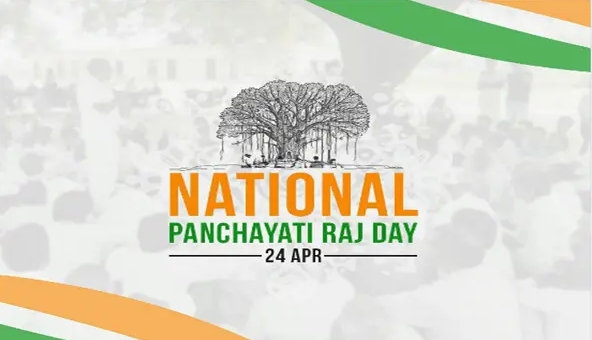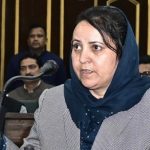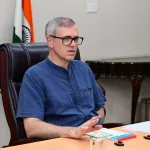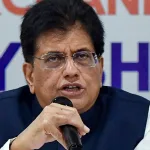NATIONAL PANCHAYATI RAJ DAY
Father of Nation, Late Mahatma Gandhi; the greatest champion of democracy and empowerment of rural masses had once remarked that ‘My idea of village Swaraj is that it is a complete republic, independent of its neighbors for its own vital wants and yet interdependent for many others in which dependence is a necessity’. His views and desire finally took the shape in the form of Panchayati Raj Institutions (PRIs). Panchayati Raj, a synonym for democratic decentralization refers to a system of local self government where local peoples plan for themselves and then take decisions regarding their development.
These institutions of local self government are unique ones. The notion of local self-governance has deep roots in India, with village councils (Panchayats) existing for centuries. These traditional Panchayats served as forums for discussion, dispute resolution, and decision-making at the community level. Underlying the importance of this basic structure; father of Nation Late Mahatma Gandhi strongly also believed in Gram Swaraj and called for transfer of power to rural masses and always felt that villages should govern themselves. This system is prevalent in countries throughout Asia. India is a democratic country.
De-centralization of power structure in a democratic way is vital for any democracy to flourish and to ensure that the results of development reach to persons standing in the last of queue. The Directive Principles for the State Policy (DPSP) enshrined in the Indian constitution says that the ‘State shall take steps to organize village Panchayats and endow them with such powers and authority as may be necessary to enable them to function as units of self-government’ Keeping this in mind the then Primeminister of India Pt. J. L. Nehru constituted a committee under the chairmanship of Balvant Rai Mehta to devise an appropriate structure for democratic decentralization at the grass root level.
The Balvant Rai Mehta Committee recommended to the then Union government to realize this statement in the DPSP into actions, through a system of local self government and thus paved the path for the Panchayati raj systems in India. It is a three tier system of the local self-government that aims towards effective implementation and coordination of various rural activities to benefits lakhs of its rural population. The three tiers of the Panchayat system in India is village Panchayat comprising of different Gram Sabhas at village level, Block Panchayat or the Mandal Samiti at the block level and Zila Parishad or the District Panchayat at the district level. Pt. Nehru himself laid the foundation of Panchayati Raj in district Nagaur of Rajasthan in 1959.
HISTORY OF NATIONAL PANCHAYATI RAJ DAY
The 73rd and 74th Constitutional Amendment Act was passed by the Parliament in April 1993. Through these two amendments the power to rule is given to the citizens, the power is transferred towards the grassroots levels. The passage of this amendment act is hailed as one of the defining moments in the history of free India. It permitted states to take effective steps to organize village Panchayats. It institutionalized the Panchayati Raj through the village level, intermediate and district-level Panchayats. To symbolize this step towards the rural development, Dr. Manmohan Singh the then Primeminister of India in 2010 declared 24th April as the first National Panchayati Raj Day. Since then it is celebrated annually on April 24th in India to commemorate the historic day when the 73rd Constitutional Amendment Act came into force in 1993. With the passing of the Constitution (73rd Amendment) Act in 1992, Panchayats were officially recognized as India’s third tier of government. This amendment introduced a three-tier system of local governance in India, with Panchayati Raj Institutions (PRIs) at the village, block, and district levels.
THE STATISTICS ABOUT PRIs
Currently, there are nearly 2.63 lakh Panchayats & about 31.47 lakh elected representatives (ERs) of PRIs of which 14.54 lakh (about 46.20%) are women. The Constitution empowers the States to devolve powers to the Panchayats to discharge their functions as institutions for local self-governance. Under the 15th Finance Commission for the period 2021-26, an amount of rupees 236, 805 Crore has been recommended for these rural local bodies.
FUNCTIONS ENTRUSTED TO PRIs
The constitution of the country has identified 29 functions to be performed by PRIs. The Panchayats have been entrusted to carry out different functions. The State Legislatures have the legislative powers to confer on Panchayats such powers and authority as may be necessary to enable them to function as institutions of self-government. Panchayats are responsible for overseeing and implementing various rural development programs and initiatives, including schemes related to agriculture, water and sanitation, education, and health. They have a crucial role to play in the development of rural infrastructure, including the construction of roads, bridges, schools, and healthcare facilities.
Panchayats are responsible for ensuring effective local governance and administration. They have the responsibility of preparing plans and implementation of schemes for economic development and social justice. They are involved in decision-making processes related to developing and managing local resources and providing public services. PRIs are also responsible for managing local finances and resources, including preparing budgets and mobilizing funds for various development initiatives. These institutions also promote social empowerment and development, particularly for marginalized communities. They work to address issues related to gender, caste, and poverty and strive to create inclusive and equitable communities.
Besides PRIs also play a key role in environmental protection and conservation, particularly in rural areas. They work to promote sustainable development, conservation of natural resources and mitigate the negative impacts of environmental degradation. A state may authorize a Panchayat to levy, collect taxes, impose duties, tolls, fees etc. The grants-in-aid may be given to the Panchayats from the Consolidated Fund of the State for the development of the area. There is also a provision of Nyaya Panchayat in each Panchayat so that minor litigations could be solved at the village/Panchayat level.
On this day to recognize the efforts of different Panchayats in the country, the Union Government also presents awards to the best performing Panchayats in the country. These awards include the Deen Dayal Upadhyay Panchayat Sashaktikaran Puraskar (DDUPSP) in general and thematic categories for all three levels of Panchayats. The nine thematic categories include sanitation, civic services, natural resource management, marginalized section, social sector performance, disaster management, community based organizations, innovations in revenue generation and e governance. The Nanaji Deshmukh Rashtriya Gaurav Gram Sabha Puraskar (NDRGGSP) is given to the Gram Panchayats (Village level) for outstanding performance of Gram Sabha. The Gram Panchayat Development Plan (GPDP) award is given to three best performing Gram Panchayats across the country. The e-Panchayat Puraskar is given to states for the outstanding performances for e-enablement of Panchayats. Creating a conducive atmosphere for the healthy growth and development of children is basic to social development, the Child friendly Gram Panchayat award(CFGPA) was announced in 2019 for best performing Gram Panchayats one in each state/UT for adopting child friendly practices.
The National Panchayati Raj Day thus gives us an occasion to celebrate grassroots democracy enabling decentralization of power to grassroots where rural communities participate in decision-making processes that impact their lives. It empowers villagers by providing them with a platform to voice their concerns, needs, and aspirations directly to their elected representatives. It is also a day to showcase the success stories of Panchayati Raj Institutions (PRIs) in various aspects like education, healthcare, infrastructure development, and rural livelihood creation. The day is also a reminder to renew the commitment of government to work for strengthening Panchayati Raj and promoting inclusive development in rural areas. The day motivates PRIs to actively work towards addressing local challenges like poverty, sanitation, and environmental degradation. It encourages PRIs to adopt innovative approaches and best practices to deliver better services and improve the quality of life in rural areas. Panchayati Raj Day helps bridge the gap between the government and rural communities, leading to more responsive and accountable governance.
Unfortunately, there have been some reports where these grassroots institutions being misused. Instead of becoming participatory they have become representative in character; representing the interests of few influential persons in the society. The women folk were given representation in these local self government institutions. Seats are reserved for them in Panchayats. But despite of winning and getting elected to different posts, there husband are ruling their Panchayats. Honorable Primeminister has also called for an end to the practice of ‘husband of women Sarpanches’ or ‘Sarpanch Pati’ exercising undue influence on the work of their wives elected to power. It is the duty of every elected representative to uphold the participatory and inclusive character of these institutions. Only then the dream of Gram Swaraj would be achieved.
(The author writes on agriculture and social issues; can be reached at: [email protected])








